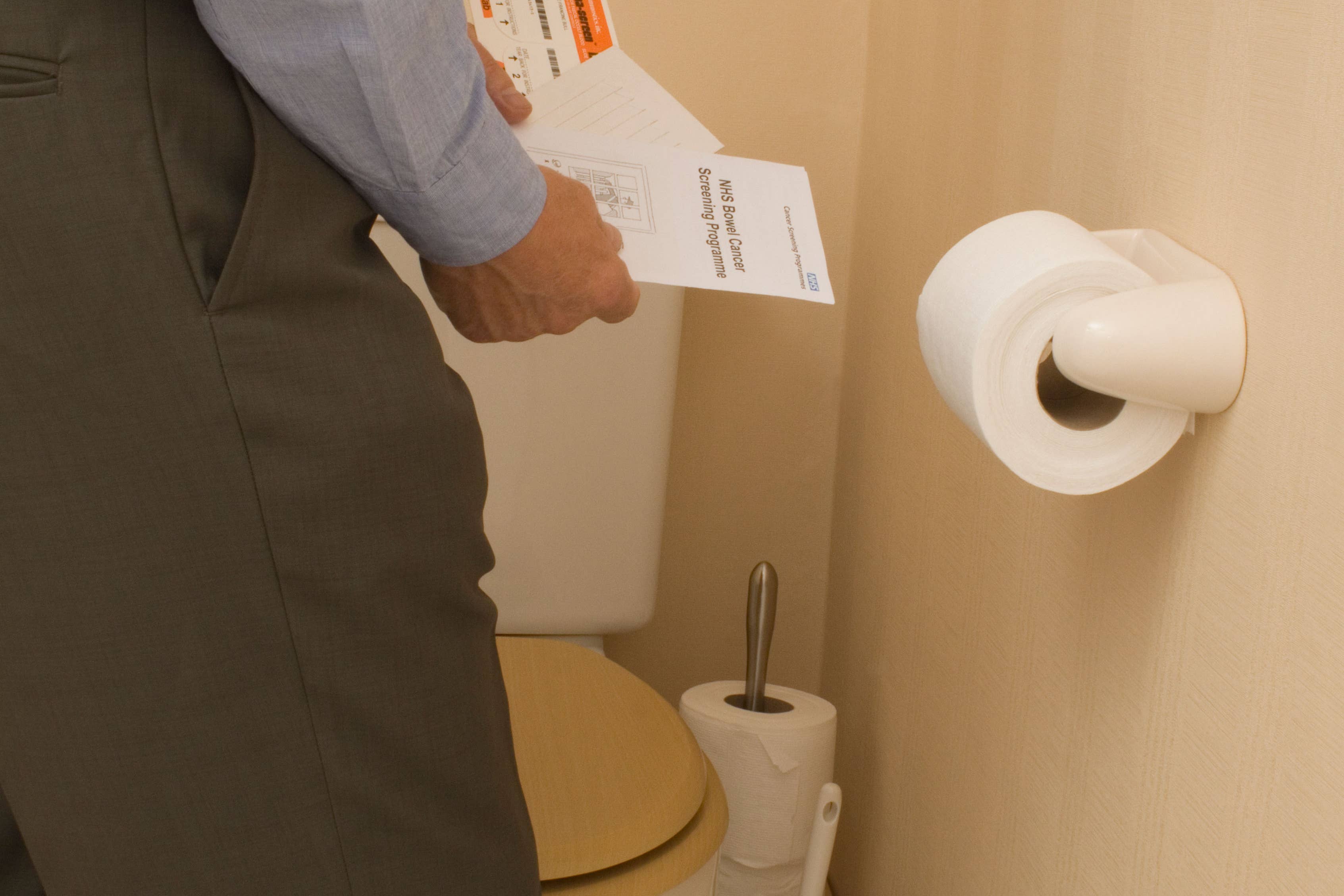People with signs of bowel cancer should be offered a £5 ‘poo test’ before invasive bowel investigations
The test costs between £4 and £5

Your support helps us to tell the story
From reproductive rights to climate change to Big Tech, The Independent is on the ground when the story is developing. Whether it's investigating the financials of Elon Musk's pro-Trump PAC or producing our latest documentary, 'The A Word', which shines a light on the American women fighting for reproductive rights, we know how important it is to parse out the facts from the messaging.
At such a critical moment in US history, we need reporters on the ground. Your donation allows us to keep sending journalists to speak to both sides of the story.
The Independent is trusted by Americans across the entire political spectrum. And unlike many other quality news outlets, we choose not to lock Americans out of our reporting and analysis with paywalls. We believe quality journalism should be available to everyone, paid for by those who can afford it.
Your support makes all the difference.People with signs of bowel cancer should be offered a £5 “poo test” before invasive bowel investigations, health leaders have said.
The main signs of bowel cancer include changes in bowel habits, blood in poo, tummy pain, bloating, weight loss and fatigue.
If a GP suspects bowel cancer after a patient reports these symptoms then they might refer them for more tests at the hospital, in particular a colonoscopy – an invasive test to check the inside of a person’s bowels.
But GPs are now being advised to give patients a test that they conduct themselves at home in new draft guidance from the National Institute for Health and Care Excellence (Nice).
The faecal immunochemical tests (FIT) involve a patient taking a small poo sample, which is then sent to a laboratory in the post.
The sample is checked for any trace amounts of poo in the blood and the results are usually available within a week.
If a certain amount of blood is detected, then GPs should refer their patients for additional tests such as a colonoscopy or CT colonography, Nice said.
The FIT test is currently used in the NHS bowel cancer screening programme, which looks for bowel cancer among adults without symptoms.
Nice said that offering all patients a FIT test before a colonoscopy will reduce the number of people referred for a colonoscopy which will lead to a reduction in waiting times.
It said that the tests cost between £4 and £5 per sample, and can correctly identify about nine out of 10 people with colorectal cancer.
This guidance will help GPs to better identify and refer the right patients for further testing quickly and could help detect bowel cancer at an earlier stage when it is more treatable and curable
And it said that GPs can refer people for a colonoscopy without a positive FIT result “if they think it is necessary and where symptoms persist”.
Nice estimated that the move could cut the number of people referred for urgent colonoscopies by half.
Commenting on the announcement, charity Bowel Cancer UK suggested that the new guidance may help people, especially younger people, be diagnosed at an earlier stage.
Dr Lisa Wilde, director of research and external affairs at the charity, said: “Those with low-risk symptoms, especially younger people, often face a delayed diagnosis or have to see their GP a number of times before being referred for further tests.
Introducing FIT to people as an initial test will also mean that those who are unlikely to have colorectal cancer may avoid having a colonoscopy, and those who are more likely to have it can be prioritised. We hope this will reduce waiting times because fewer people will be receiving a colonoscopy they don’t need
“This guidance will help GPs to better identify and refer the right patients for further testing quickly and could help detect bowel cancer at an earlier stage when it is more treatable and curable.”
Mark Chapman, interim director of medical technology and digital evaluation at Nice, said: “We know the demand for colonoscopies is high, so recommending the use of FIT in primary care could identify people who are most likely to have a condition that would be detected by colonoscopy.
These recommendations ensure we are balancing the best care with value for money, while at the same time delivering both for individuals and society as a whole
“Introducing FIT to people as an initial test will also mean that those who are unlikely to have colorectal cancer may avoid having a colonoscopy, and those who are more likely to have it can be prioritised. We hope this will reduce waiting times because fewer people will be receiving a colonoscopy they don’t need.
“These recommendations ensure we are balancing the best care with value for money, while at the same time delivering both for individuals and society as a whole.”
A consultation on the Nice draft guideline will run until 19 July.


